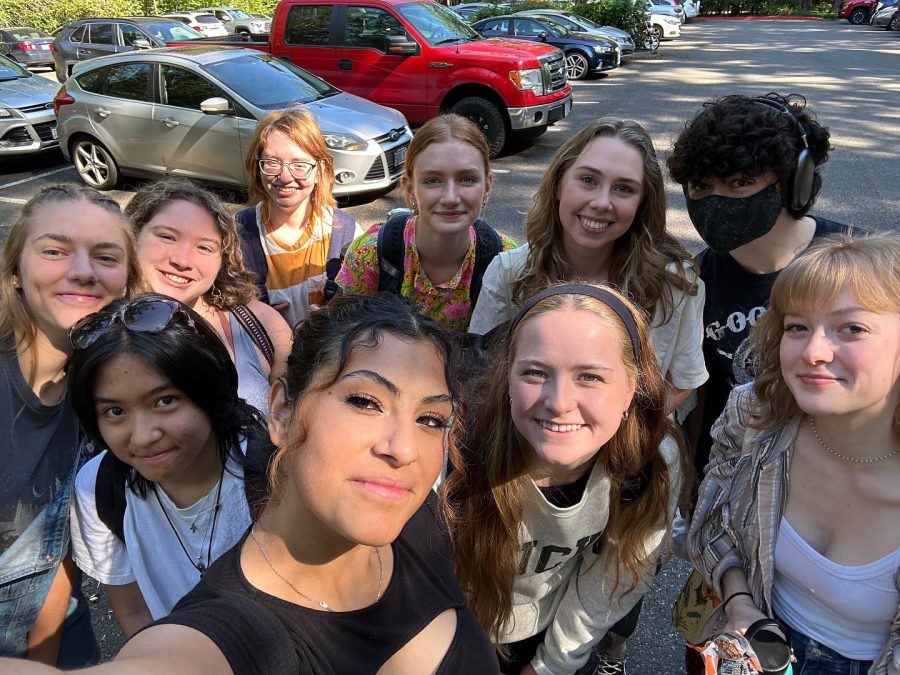Field trips further enhance student experiences
AP science students snap a quick selfie before entering the Primate Research Center. The day-trip included both a tour of the center and a panel of scientists.
Memories of excitement for classroom trips are a seemingly universal experience. Setting out one’s outfit the day before, packing a lunch, and stepping onto a bus ready to explore the world is a staple for students in the public school system.
Field trips are one of the most typical examples of physical learning outside of the classroom, and often allow students to step into a world that they are not used to.
They allow students to explore different careers and how they work from the inside–as well as hearing from those who already work in the field.
This week, the AP Chemistry and AP Biology courses embarked on a journey to Oregon Health Sciences University’s National Primate Research Center.
Many aspects of science and research require testing, and non-human primates play a big part in furthering research– specifically in medicine.
As students exploring future careers in scientific research, this trip was especially beneficial. Venecia Gonzalez claims she has “always been interested in a scientific career,” but this experience was definitely beneficial for her to see the inner workings of the field.
This trip allowed her to have an even better understanding. “I think it definitely gave me a different perspective. Now I know that research and experiments aren’t just a one step thing–they involve lots of collaboration and time.”
Even if students weren’t initially interested in such careers, having access to these school-led adventures opens up more opportunities and perspectives for them to explore.
Jade Ramilo expresses excitement for the trip after the fact. “It was really interesting, and I would definitely explore something like this as a future career.”
Regardless of having possibly not even thought of exploring this field in past years, being exposed to more physical and practical examples of the subject can allow for even more interest in the field.
Field trips can be greatly beneficial for students in academics by opening up interest in future careers, furthering physical learning, and allowing students to truly experience the world around them.











